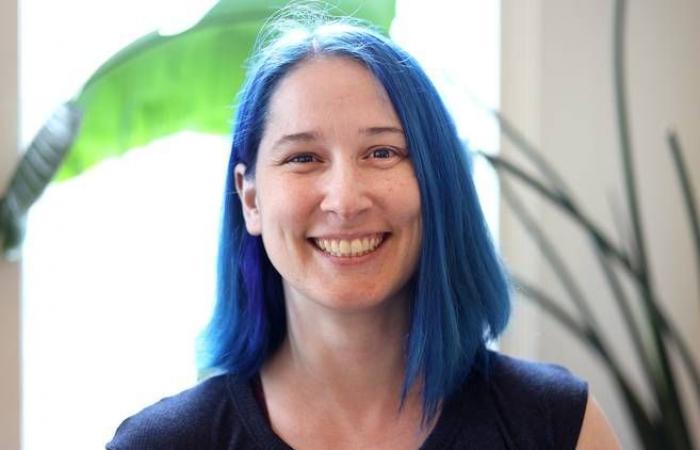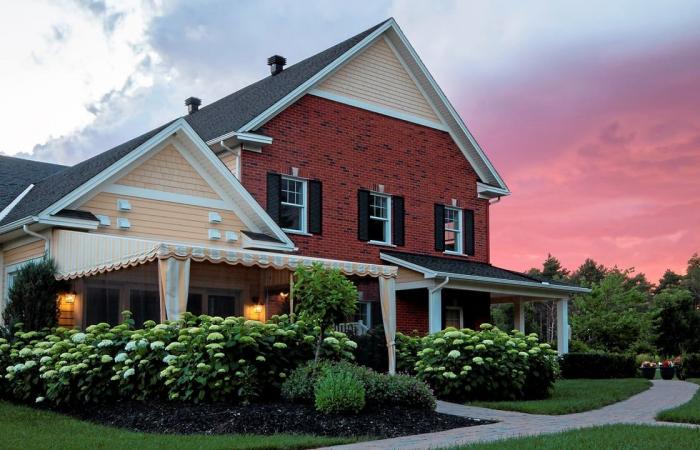This is also the story of Kimberly Nadeau who lost her two grandmothers in 2021. Fortunately, she comes from a close-knit family. And his two important women in his life were able to leave, well looked after.
“My grandmother was in a semi-private room and she and I were very close. On the other hand, another person was there, nearby, and I never saw anyone go to visit her. I found it boring that she was not as well supported as my grandmother,” explains Ms. Nadeau.
When her maternal grandmother died, Ms. Nadeau wanted to give back by getting involved as a volunteer at La Maison au Diapason, located in Bromont.
“I really liked the team and the contact with people. So I wanted to learn more about the subject and I took training at the Cybèle support school in Montreal to become a thanadoula.
Thanadoulas are end-of-life support people. They create an end-of-life plan, supporting the person and families through a necessary transition that is not easy for many. (123RF)
Thanadoulas are end-of-life support people. It is important to clarify that this is non-medical support. They take care of establishing a plan with the requests and needs of the person. Thanadoulas can also support families who remain and must go through bereavement following their departure.
Thanadoulas are essentially self-employed workers who can develop partnerships with organizations and people in the private sector.
“For example, we are called and we have a preparatory meeting, we have to make sure that it is a good one. fit. You must then do an assessment and see the medical portrait. Just so I’m aware: what does his entourage look like, what are his goals, we’re going to talk about death. You also have to start the conversation with the family. I work a lot on the end-of-life plan, we also talk about pre-arrangements, to see if they are made,” says Kimberly Nadeau.
She adds that when talking about the life plan, she always asks the question: “What is your ideal death? How would you see that?” in order to clearly define the needs of the person she is supporting.
It also provides him with the tools and local resources to help him realize his end-of-life wishes when possible.
Additional help
Even last year, the practice of thanadoula was unknown to Karine Messier, director of nursing at La Maison au Diapason, located in Bromont.
“Kimberly approached me last year and it wasn’t something I knew at all and it really resonated with me. […] It was one of the projects that I cherished and I said that at some point we must succeed in making palliative and end-of-life care more accessible and encourage people to prepare so that it is as gentle as possible. »
— Karine Messier
Kimberly Nadeau touched the values of La Maison au Diapason by joining the team in order to “demystify and inform the population”. “It complements our services,” adds Ms. Messier.
“I just see the benefits of having a multidisciplinary team. We complement the care provided by the medical team. We don’t provide care, it’s really support […] I don’t think there is any resistance. If there is one, it is because it is not well understood about what we can do,” underlines Ms. Nadeau.
La Maison au Diapason helps to smooth the end-of-life trajectory of the people who stay there and their families. (Archives)
According to Ms. Messier, there is a great complementarity between the thanadoulas and the nursing staff.
“I don’t see any problem, on the contrary. There is no private domain in palliative care. In the sense that this is not my patient or your patient. It’s how we work as a team so that the patient has the best quality of life or the best care. So at that point, if the patient requests a thanadoula, that’s just one more member of the team to help us,” she adds.
And elsewhere?
Collaboration between thanadoulas and medical staff seems to work well in palliative care homes or even in the private sector. But what about in hospital environments?
“This is our first request for the thanadoulas. It even led people to learn the term […] And seeing the email exchanges during the day, I’m led to believe that people didn’t even know it existed!” mentions Nancy Corriveau, media relations advisor at the Granby hospital center.
After a few days of research with the establishment’s staff, the doubts were confirmed; to date, there has been no presence of thanadoula within their walls.
“We have not yet had the opportunity to welcome a thanadoula into our facilities. Palliative and end-of-life support is offered free of charge in our facilities. This support is offered by spiritual care workers, nurses trained in palliative and end-of-life care. Also, we collaborate with palliative care homes in Estrie to support people and their loved ones with palliative and end-of-life care,” adds Ms. Nancy Corriveau.
Ms. Corriveau adds that a thanadoula will always be welcome during her visits to a user who wishes to be accompanied by her. “During her presence, the thanadoula will be asked to respect the medical and professional treatment plans agreed between the clinical team and the user,” she notes.
At the Cowansville hospital, Isabelle Bessette-Gagné, nurse consultant in palliative care, also mentions that the thanadoulas have not opened the doors of their establishment until now.
“No, our team is made up more of social workers, spiritual care workers, palliative care nurses and palliative care doctors,” she notes.
However, according to her, anyone who has training and who is there to offer support and accompaniment “are welcome among us”.
She also adds that the practice of thanadoula is an approach that is interesting and could be complementary.
“Each speaker has their place. In Cowansville we have a great opening. Anyone who wants to bring good to a patient or the family is welcome,” she says in conclusion.







